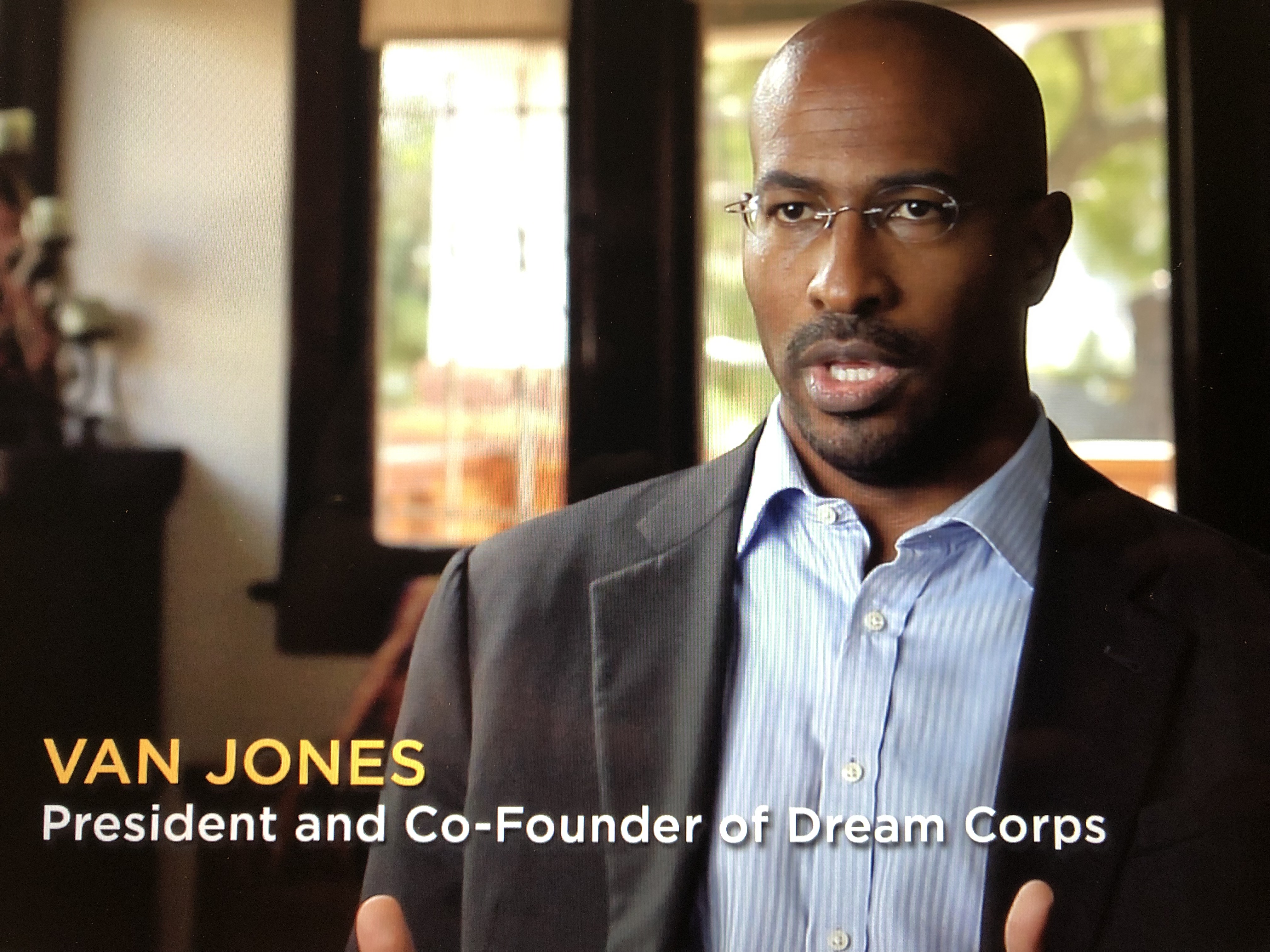Arthur Jensen
Progressive Creationism: A Review of 'A Dangerous Idea'
“In fact, with the rise of the Offense Culture, the Left’s attacks on science have become more intense. Expect more of them.”

In a recent article for Quillette, Colin Wright argued that left-wing scientific denialism poses a greater threat to academic freedom than right-wing scientific denialism. In the past, evolutionary biologists could dispute the claims of creationists and advocates of Intelligent Design without jeopardizing their careers. But the same cannot be said of scientists who publicly dissent from progressive dogma when it comes to, say, the biology of group differences.
The reason, according to Wright, is because the Christian Evangelicals who denied the basic principles of evolutionary biology held no power in academia, while their secular equivalents are often professors, department chairs, deans, administrators, college presidents, journal editors, and so on. Indeed, the new denialist orthodoxy when it comes to biological sex—that it is “assigned” at birth, rather than observed and recorded—is now the official view of the scientific establishment, having been embraced by Scientific American and Nature. As Jordan Peterson wrote in The National Post two years ago: “Look out evolutionary biologists. The PC police are coming for you.”
I imagine few of Quillette’s readers will need convincing of this, but in case anyone thinks Wright is being alarmist I recommend A Dangerous Idea: Eugenics, Genetics and the American Dream.
This new, feature-length documentary, funded by Kickstarter and available on Amazon Prime, painstakingly recycles the most hysterical, left-wing arguments against genetics and, in particular, those who’ve sought to apply genetic research to understanding behavioral and psychological differences. As Jerry Coyne pointed out in a recent blog post, it’s this aspect of evolutionary biology that is most frequently attacked by progressive creationists. “One would think that Steve Pinker’s book The Blank Slate would have dispelled this kind of blank-slateism, but it hasn’t,” he writes. “In fact, with the rise of the Offense Culture, the Left’s attacks on science have become more intense. Expect more of them.”
A Dangerous Idea rounds up all the usual suspects, from James Watson and Francis Crick to Arthur Jensen and Charles Murray, and subjects them to what amounts to a show trial. They are all “biological determinists,” in the words of the documentary’s narrator, which makes them guilty by association of some of the worst crimes of the 20th century, including the Nazis’ extermination of six million Jews and the forced sterilization programs of 31 U.S. states. Not only that, but the very notion that DNA provides a genetic blueprint for life—not just human beings, but any living organism—is based on “pseudoscience.” That’s right, Crick and Watson, who jointly won the Nobel Prize in Medicine for the discovery of the Double Helix, aren’t real scientists, according to this documentary. “DNA does not determine our physical traits,” intones the narrator about two-thirds of the way through. Apparently, the very concept of a gene is “a figment of our collective imagination.” The film includes interviews with some of the “dangerous” scientists responsible for these fictions, including James Watson, creating the impression that they were given a chance to respond to the charges laid at their feet and had nothing to say. In fact, this is all bought-in footage, and very carefully edited.

As with the editorials in Scientific American and Nature, A Dangerous Idea does its best to give the imprimatur of scientific respectability to its progressive creationism, enlisting a series of men (and women) in white coats to debunk the “gene myth.” The first witness for the prosecution is Richard Lewontin, the Marxist biologist who led the witch-hunt against E.O. Wilson in the 1970s. He enthusiastically trots out the objection to Wilson and others in this field that he’s been making for 50 years, namely, that any description of what is when it comes to the genetic influence on human behavior is a prescription for what ought to be.
“That’s a very important justifying ideology,” he says, responding to the idea that certain key psychological traits, such as aggressiveness, are heritable—
If you believe that all these characteristics are first of all universal and secondly that they’re in the genes, then you would be forced to say we must have society as it is now. So it destroys any question of political morality to change things and it also destroys any claim that we could change things, so it has tremendous importance.
A first year philosophy student would recognize this as the naturalistic fallacy, but no one involved in A Dangerous Idea challenges this faulty reasoning. On the contrary, it forms one of the central planks of its argument against genetic research, the other being that it’s “pseudoscience.” We’re told again and again that anyone who maintains that human behavior is genetically influenced and not entirely the product of the environment—and this is always presented as a binary choice—is an apologist for racial and sexual inequality. This is the “dangerous idea” of the title. According to the narrator, it has been responsible for some of the darkest episodes in the history of mankind. “Biological determinism didn’t begin with genetics,” intones the voiceover as we’re shown an old poster for a slave auction:
Rulers throughout history claimed their divine right to wield power over others was hereditary, based in their noble blood. Even though the United States was the first modern republic to reject aristocracy based on biology, soon after the nation’s founding craniometry was being used to defend the enslavement of Africans and the genocide of Native Americans.

This reference to “craniometry” is a cue to regurgitate the thesis of Stephen Jay Gould’s The Mismeasure of Man (1981) in which the Harvard paleontologist rubbished the work of Samuel George Morton, the 19th Century physician who measured human skulls and found that Caucasians had a larger cranial capacity than any other race. Gould claimed that Morton distorted his data to fit his political preconceptions and held up his research as a cautionary tale of how unconscious bias can lead to bad science. The makers of the documentary either aren’t aware—or, worse, chose to ignore the fact – that Gould’s critique was itself skewed by ideological bias.
In a 2011 paper published in PLOS, a team of researchers led by Jason Lewis described how they’d remeasured Morton’s skulls and found his data to be accurate. They also forensically examined Gould’s allegations against Morton, such as the claim that he’d left out data that contradicted his conclusions, and discovered that, for the most part, they were just plain wrong. They don’t flat out accuse Gould of fraud, but it’s hard to escape that conclusion, given how comprehensively he misrepresented Morton’s work. (For another example of Gould misrepresenting the work of a “race scientist,” see here.)
I’m not defending Morton’s conclusions, incidentally, just pointing out that Gould’s critique of his work is flawed. Why did Gould risk his own reputation in order to discredit Morton’s? Presumably because he feared that if Morton’s research was accepted as accurate it would undermine the case for racial equality. Again, this is faulty reasoning, only this time it’s the moralistic fallacy, a close cousin of the naturalistic fallacy. This is the assumption that some aspect of nature cannot be true, or allowed to be widely thought of as true, because that would lead to socially undesirable consequences. This twisted logic runs through A Dangerous Idea like a stick of rock. In addition to endorsing Gould’s dismissal of Morton, the film pours scorn on the idea that women’s brains are, on average, smaller than men’s, and gives this as another example of “pseudoscience.” In fact, the largest single-sample study of structural and functional sex differences in the human brain ever undertaken, involving over 5,000 participants, found that, on average, the total brain volume of women is smaller than that of men, even after adjusting for men’s larger average body size. Does this undermine the case for gender equality? Of course not.
The mistake this documentary makes is one that’s made again and again by opponents of sociobiology, evolutionary psychology, behavioral genetics, sociogenomics, and so on, which is to assume that any explanation of behavioral or psychological differences that appeals to biology is a right-wing attempt to justify inequality—a form of Social Darwinism. And by “inequality” these critics don’t just mean inequality of outcome, but the withholding of equal rights from women and minorities. By conflating these two types of inequality, they can point to the difficulties that research findings in these fields create for hardline egalitarians and claim they also present a difficulty for advocates of equal rights. So anyone who believes in equality of any kind, not just end-state equality, has a moral duty to attack these research fields. But, as Steven Pinker points out:
Equality is not the empirical claim that all groups of humans are interchangeable; it is the moral principle that individuals should not be judged or constrained by the average properties of their group.
It’s such an elementary mistake, it’s slightly baffling as to why it’s made so often by those on the Left, not just the makers of this documentary. Do they think: We know that equal rights under the law aren’t contingent on the blank slate hypothesis, and we realize that thinking they are is to commit a logical fallacy. But ordinary mortals are too stupid to grasp this point. Those troglodytes out there in red state America would seize on any research evidence showing that behavioral and psychological differences are affected by our genes to justify their bigotry and prejudice. So it’s our duty, as the moral guardians of various victim groups, to expel from the public square anyone daring to challenge blank slate orthodoxy and dismiss their research as “racist pseudoscience.”
Or do they genuinely think that equal rights are contingent on environmental determinism? Not just politically, because it’s easier to persuade people to embrace equal rights if they believe humans are born as blank slates, but logically? Are they the stupid ones?
Whatever the explanation, the energy the Social Justice Left devotes to denying basic scientific truths puts the persecutors of Galileo to shame. There’s a particularly feeble section in A Dangerous Idea in which all the arguments against the validity of IQ tests are rehashed, as if no one’s told the filmmakers that the existence of a general intelligence quotient, and its correlation with various real-world outcomes, such as socio-economic status, health and longevity, is one of the most robust findings in all of psychology. A psychotherapist called Jay Joseph is wheeled out, author of a book called The Trouble with Twin Studies: A Reassessment of Twin Research in the Social and Behavioral Sciences (2016), to rubbish the evidence from twin and adoption studies. He argues that the reason identical twins raised together are more similar psychologically than fraternal twins raised together is not because they share more genes—genes are a figment of our imagination, after all—but because their greater physical similarity means they’re treated less differently by their parents than fraternal twins. But what about the same finding when it comes to identical and fraternal twins reared apart? Why are the former more similar when it comes to a whole range of personality traits, including IQ, than the latter, given that they’ve been separated at birth? Joseph isn’t asked to address that point. (For a comprehensive rebuttal of the arguments in Jay Joseph’s book, see this review by Julien Delhez.)
About a third of A Dangerous Idea consists of a history lesson, in which we’re repeatedly told that evil men in the past have appealed to genetics to justify their white privilege and perpetrate human rights abuses, including genocide. But the fact that hereditarianism has been used as an excuse by bad actors to do terrible things doesn’t discredit the entire hereditarian tradition, as the makers of this documentary seem to think. That’s another fallacy—ad hominem. You might as well argue that the crimes against humanity committed by Mao Tse-tung and Pol Pot in the belief that human beings are pieces of clay that can be molded into good Communist citizens completely discredits the filmmaker’s blank slate philosophy. And, of course, there’s nary a mention of the fact that eugenics was far more popular with the progressive Left than it was with the Right at the beginning of the 20th Century. If we’re to regard present-day conservatives with suspicion because their philosophical forebears were in favor of eugenics, shouldn’t we regard present-day progressives as suspicious for the same reason?
The intellectual paucity of A Dangerous Idea wouldn’t matter if we were living in normal times. But there’s a risk it may be shown by progressive zealots on campus to whip up opposition to visiting speakers or members of the biology faculty. The most egregious section in the film is an interview with Van Jones, an African-American activist and CNN contributor, about Charles Murray.

First, the narrator summarizes the thesis of The Bell Curve (1994): “Most controversial was Murray’s claim that black people and Latinos are less intelligent on average than whites and that this explained unequal social outcomes.” Actually, the claim that blacks and Latinos score lower on IQ tests on average than whites – the claim that Murray and Herrnstein make – isn’t remotely “controversial.” It is an incontestable fact. Even Murray’s most ardent critics acknowledge that. The controversial bit is when Murray and Herrnstein discuss various different explanations for this discrepancy. Nevertheless, Van Jones then pops up to denounce Murray as if pointing out this fact makes him an out-and-out racist:
I thought we had killed this kind of stuff off and here it comes back out of the grave dressed up in scientific garb, but the last time we saw it, it was wearing a Klan robe and it’s the same set of ideas.
Van is effectively ordering students to no-platform Murray next time he’s booked to appear on their campus—he’s virtually a Klansman, right?—and, sure enough, we’re then shown footage of students doing precisely that at Middlebury College last year. Needless to say, there’s no mention of the fact that when Allison Stanger, a politics professor at Middlebury, tried to get between Murray and the protestors she ended up in the emergency room.
The other risk, if this propaganda is allowed to go unchecked, is to members of the biology faculty. I don’t just mean they may be driven off campus, as Brett Weinstein was at Evergreen. Rather, they simply won’t be able to do their jobs—which is to teach science. That’s been the experience of Luana Moroja, the chair of the biochemistry program at Williams College. She wrote to Jerry Coyne about how bad things have become:
Many professors at Williams have been feeling the walls closing in. I’m an evolutionary biologist, and in my classes there is increasing resistance to learning about heritability (probably fear of the “bell curve”, something I actually dismiss by contrasting Brazilian with Americans, as I am from Brazil) and even kin selection! (Using the “naturalistic fallacy” argument, students assume that by teaching kin selection I am somehow endorsing Trump hiring his family.) The word “pregnant woman” is out: only “pregnant human” should be now used (after all, what if the pregnant individual goes by another pronoun?). In other fields the walls have closed in even more.
I’m not arguing that “A Dangerous Idea” shouldn’t be shown on campus because it may endanger evolutionary biology professors. That would be to invoke the same argument against free speech that the documentary makes. Nevertheless, everyone associated with this crude piece of scientific illiteracy should be ashamed of themselves—including Robert Reich, the former Democratic Labor Secretary, who is interviewed throughout. They are the progressive equivalent of anti-Vaxxers.






